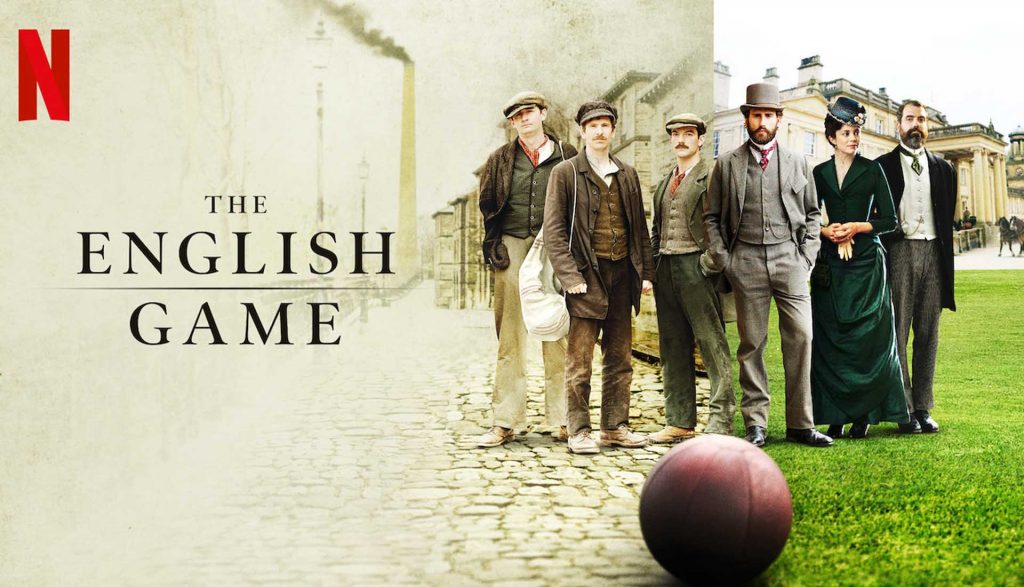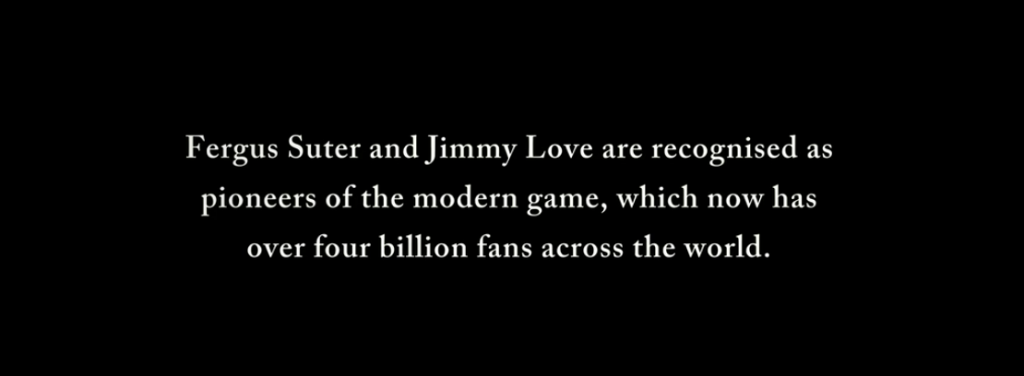
“Making Football English” (Part I of this two-part series) addressed the ways in which Julian Fellowes’s The English Game narrativizes the origins of football (or soccer, for those of us in the U.S.) as distinctly English despite the Scottish influence on the English game. As discussed in part one:
Football historian and The English Game consultant Andy Mitchell tells The Telegraph‘s Paul Kendall, “The Scottish game was far more effective than the English game at this time. The English version … was more like rugby.” Paul Kendall continues: where the English teams “would just dribble in a pack and try and force a goal through brute strength,” the Scottish teams “developed a way of making space and passing the ball … playing the game as we understand it today.” The series concludes with this title frame:

Apart from Fellowes’s endeavor to portray football as distinctly English, I found this concluding title slide in the final episode particularly intriguing. The so-called “English game,” pioneered by Scottish professionals, is presented not only as being distinctly English, but also as the standard for modern football around the globe. Continue reading “Universalizing “English” Football, Part II”
